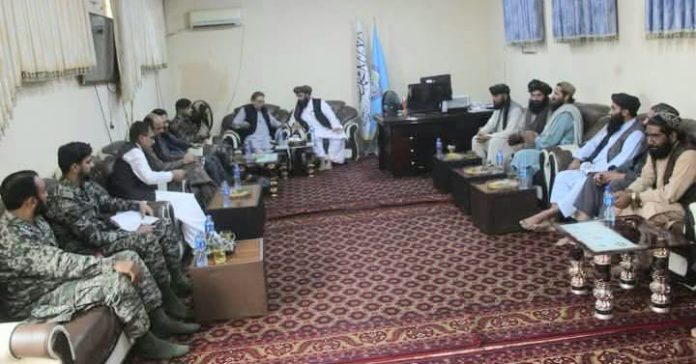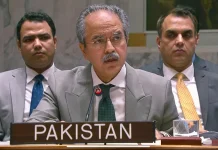By Ashrafuddin Pirzada
LANDIKOTAL: Amid ongoing tensions and previous border clashes, Pakistani and Afghan officials held a key meeting at the Torkham border crossing and discussed ways to enhance border coordination and resolve emerging challenges, official sources said on Tuesday.
They said Pakistan’s special representative for Afghanistan, Ambassador Sadiq Khan, described the meeting as “cordial and constructive.”
The high-level interaction focused on improving cross-border communication, managing border traffic and addressing mutual concerns. Officials from both countries expressed a strong commitment to maintaining peace and strengthening ties through sustained dialogue and cooperation.
Ambassador Sadiq Khan said the talks were held in a spirit of mutual respect, and both sides agreed on the need for continued engagement to build trust and promote regional stability.
“Such interactions are vital for confidence-building and resolving misunderstandings,” Sadiq Khan explained.
Torkham, the busiest land crossing between Pakistan and Afghanistan, has remained a flashpoint in recent years. Frequent border closures, skirmishes between security forces, and disagreements over visa and trade regulations have disrupted the movement of people and goods, affecting thousands of daily commuters and traders on both sides.
One of the most serious incidents occurred in September 2023, when clashes between Pakistani and Taliban border forces resulted in the temporary closure of the crossing. The exchange of fire left several wounded and heightened tensions between the two countries, prompting urgent diplomatic efforts to defuse the situation.
Earlier in March 2022, Torkham was shut down for several days after a disagreement over documentation procedures for Afghan travellers. The closure sparked protests on both sides and highlighted the need for clearer coordination and consistent border protocols.
The issue of cross-border militancy also remained a major concern. Pakistan has repeatedly accused Afghanistan-based militants of launching attacks across the border, while Kabul has voiced concerns over visa restrictions and trade barriers. These differences have often led to friction and mistrust.
During the meeting, both sides agreed to improve intelligence sharing and operational coordination to address security threats. They also discussed ways to facilitate smoother trade and humanitarian movement, especially in the wake of recent economic hardships faced by Afghan citizens.
Sadiq Khan expressed optimism that the renewed dialogue would pave the way for more institutionalized mechanisms of engagement.
“Peace at the border is essential not only for bilateral relations but also for the well-being of border communities,” he added.
The meeting marked a rare thaw in relations and is being viewed as a positive step toward repairing strained ties. However, observers caution that without sustained political will and practical implementation, such meetings may yield only temporary relief from recurring tensions at Torkham.












